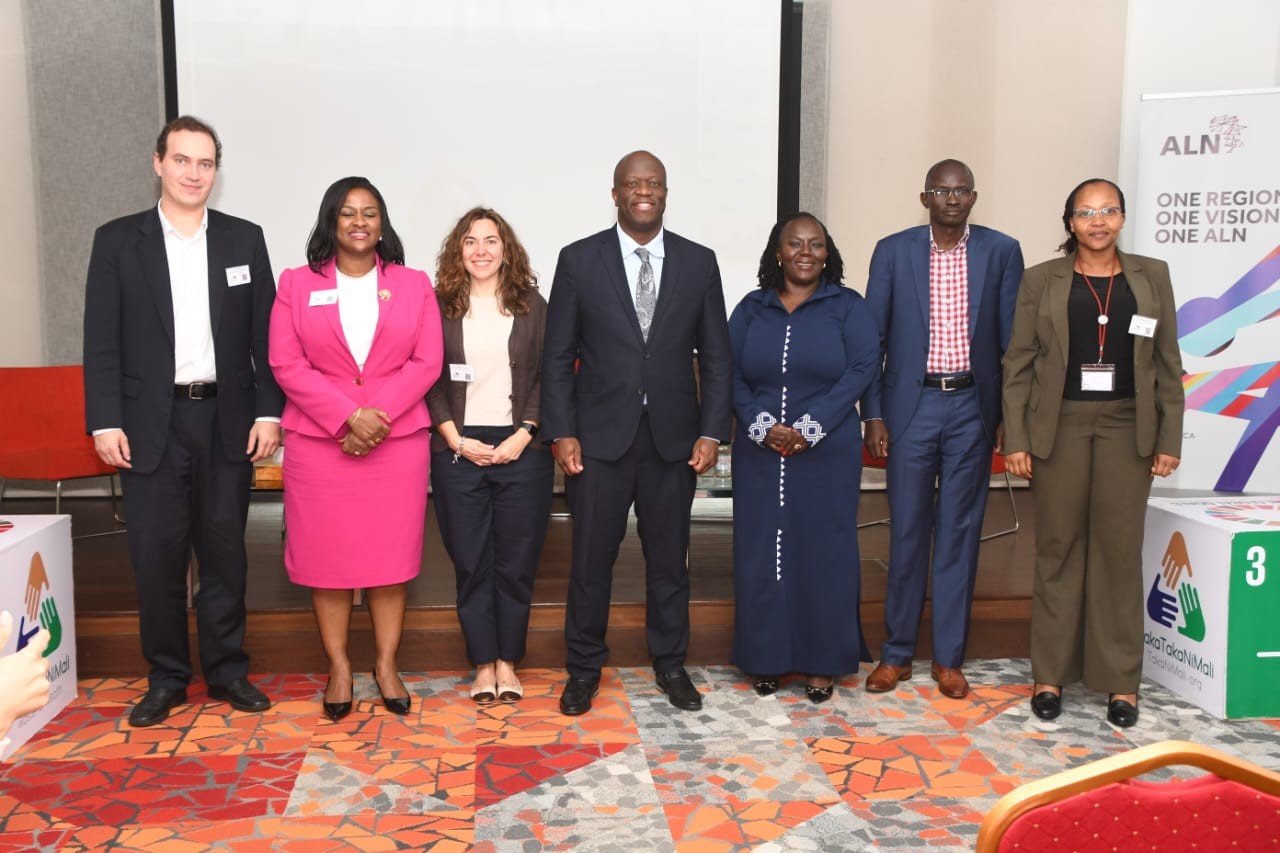Transforming waste into valuable assets at Africa Waste is Wealth Conference 2024
CSIR senior researcher Dr Valentina Russo joined experts, innovators, thought leaders and key stakeholders from across Africa at this year’s Africa Waste is Wealth Conference 2024 (AWWS2024), held from 8 to 9 October in Nairobi, Kenya. Russo’s participation resulted from the CSIR’s collaboration with the Pew Charitable Trust. She urged for the strengthening of policy frameworks, wide participation and a deeper understanding of the waste management landscape for a circular economy.
CSIR senior researcher Dr Valentina Russo joined experts, innovators, thought leaders and key stakeholders from across Africa at this year’s Africa Waste is Wealth Conference 2024 (AWWS2024), held from 8 to 9 October in Nairobi, Kenya. Russo’s participation resulted from the CSIR’s collaboration with the Pew Charitable Trust. She urged for the strengthening of policy frameworks, wide participation and a deeper understanding of the waste management landscape for a circular economy.
Delving into the current legal landscape surrounding waste management in East Africa, Russo’s talk proved to be an insightful discussion delivered during the key session, “Waste Management Regulatory Framework”, highlighting the regulatory gaps, enforcement challenges, and the role of policy in promoting sustainable practices. Here she seized the opportunity to showcase the work done with the Pew Charitable Trust using Pathways in South Africa, as well as to promote the application of the Pathways model in other African countries.
The Pew Charitable Trust and the CSIR have been in collaboration since 2021. South Africa became the first country to work with the Pew Charitable Trust and Oxford University to test and apply Pathways, a modelling framework and software tool which stemmed and evolved from the Pew report, “Breaking the Plastic Wave”, at the country level. The waste management landscape is complex, no silver bullet exists to enhance resource recovery and reduce environmental impacts. Russo and the CSIR team have highlighted the key role of targeted policy interventions, i.e. the Extended Producer Responsibility Regulations, by applying Pathways to curb plastic leakage into the environment, and what a wide system-level approach would entail to drastically reduce plastic pollution.
The two-day conference empowered delegates to explore options and devise contemporary solutions that will drive sustainable waste management and economic empowerment for communities across Africa. Topical talks and discussions accentuated the role of plastic credits, green initiatives underway, digital technologies in consumer insights, data management, and the disclosures of initiatives aimed at shaping the future of sustainability on the continent. “It was important to share insights from South Africa's experience in providing evidence-based outcomes on policies’ effectiveness at tackling plastic pollution, and to share some of the critical lessons learnt for consideration in the legal landscape of waste management in East Africa,” Russo says.
One of the objectives of AWWS2024 was to create further awareness and engagement on the East Africa Community Single-Use Plastic (SUP) Draft Bill that was submitted at the East Africa Legislative Assembly. The Bill is ambitious in scope, aiming to create a disruptive impact on plastic pollution across Kenya and East Africa and, if successfully implemented, it would mark a transformative milestone for both Kenya and the East African Community (EAC) as a whole.
There is potential for some valuable opportunity for the application of the Pathways tool, particularly in assessing the effects of the SUP Bill in specific contexts first, and then expanding the analysis in other parts of Kenya and, ambitiously, across the EAC as well, which would offer valuable support for the implementation of the Bill regionally. Through the experience gained in providing both technical, scientific and policy support to the application of Pathways in Zambia – a collaborating project between the CSIR, the Secretariat of the Basel, Rotterdam and Stockholm Conventions and the Pew Charitable Trusts, Russo and the CSIR's team could play a contributory role in Kenya's effort to waste management. “Ongoing collaboration between all stakeholders in the plastic value chain is crucial to building a circular economy and ensuring sustainability in the region,” she adds.

Africa Waste is Wealth Conference 2024. CSIR senior researcher Dr Valentina Russo (third from left)
is joined by panel speakers on 8 October 2024 during the Panel 4: Waste Management Regulatory Framework talks.
Credit: ALN Kenya | Anjarwalla & Khanna.


